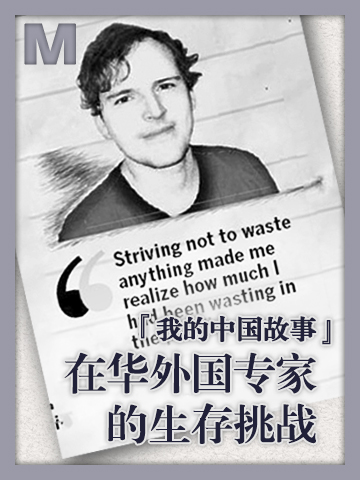作为一个美国人,我深受过去十年以来美食主义盛行的影响。对于我来说,食物不是别的,就是享受。我如此享受做饭做菜、吃吃喝喝,以致于我都快忘记了,在这个世界上,有30亿人不能享受到食物的乐趣。于他们,食物仅仅是生存所需。
即使处于薪酬等级末端,在中国的外国人依然可以赚到足够多的钱,过上中产阶级的生活。部分为了好好审视一下所谓的“外国专家”身份带给我的某种特权地位,我最近决定参加一项“最低生存挑战”活动。这是一项全球性的活动,号召人们每天只在食物上花1.5美元(大概9.1元人民币),以表示对过着贫困生活的人们的声援。
这项活动5月份启动,一时在西方吸引了很多明星、美食节目的大厨和媒体人士参与。公众借此得知了很多名人的轶闻趣事,诸如(为了省钱)某主持人吃杂牌红肠,那些电影明星们放弃了拿铁咖啡。不过,在中国这样一个有着世界上很大比例的贫困人口的发展中国家,却极少有这类活动。
As one of the millions of Americans caught up in foodie trend that had hit the nation over the past decade or so, it is hard for me to think of food as anything other than an indulgence. I enjoy cooking and eating so much that I tend to forget that there are 3 billion people in the world who do not view food as a luxury. For them, it means life.
Even at the lowest end of the pay grade, expatriates in China make salaries that place them well within the ranks of the country's middle class. Partly in an effort to examine my own privileged status as one of the so-called foreign experts, I decided to take part in the Live Below the Challenge, a global campaign that calls on people to eat on less than $1.50 a day in a show of solidarity with those living in poverty.
Launched in May, the campaign was a cause du jour for celebrities, TV chefs and media personalities in the West. The public was treated to tales of anchormen living on off-brand bologna and movie stars giving up their lattes, but the perspective of a developing nation where a large proportion of the world’s poor actually live was absent.
贫穷有多面性,食物成本仅是其中之一。
“最低生存挑战”这项活动启动后,在西方引起了社会各界的广泛参与,而在中国这样的发展中国家,却极少有类似活动。在本期内容中,一位在华外国专家用一周的时间体验了这项活动,并重新认识到了食物的价值,发觉了自己在日常生活中有多么铺张浪费。或许,外国专家的“生存挑战”也可以给我们带来一些启示。
- 『故事一』 在华外国专家的生存挑战
- 『故事二』 “魅力老外”潘维廉的厦门情缘
- Experience of Foreign Experts in China: Live Below the Challenge
- Rolling stone finally settles













 京公网安备 11010802032529号
京公网安备 11010802032529号
笔记加载中...